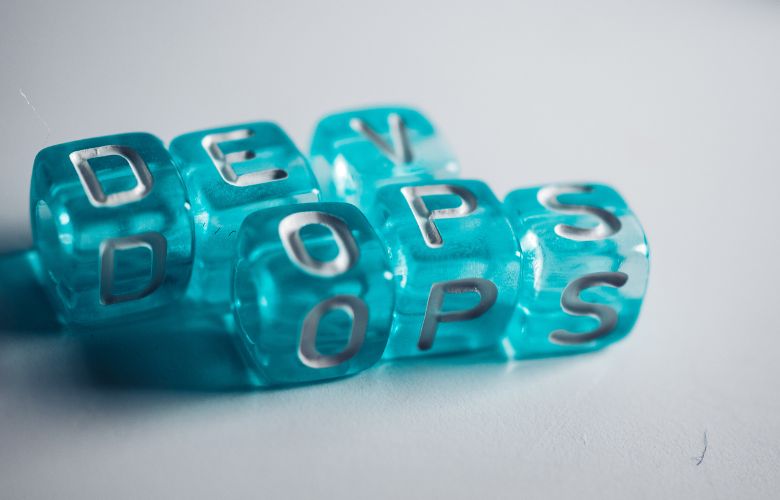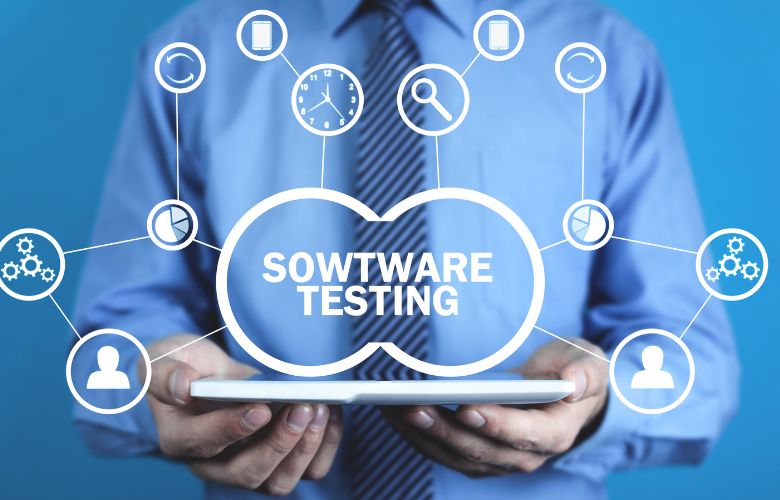In the world of software development and IT operations, DevOps has emerged as a game-changing approach to streamline processes, improve collaboration, and accelerate the delivery of high-quality software. On the other hand, Artificial Intelligence (AI) has been making waves across industries, from healthcare to finance. But how can DevOps take advantage of Artificial Intelligence?

Contents
Understanding DevOps and Advantage of Artificial Intelligence
Before delving into the integration of AI and DevOps, let’s clarify what each of these terms means.
DevOps is a set of practices, principles, and cultural philosophies that foster collaboration and communication between development (Dev) and IT operations (Ops) teams. The primary goal of DevOps is to automate and integrate the processes of building, testing, and deploying software to deliver value to end-users more rapidly and efficiently. DevOps aims to break down traditional silos between development and operations, promoting a holistic approach to software delivery.
The Role of Artificial Intelligence in DevOps
Artificial Intelligence (AI) refers to the development of computer systems that can perform tasks that typically require human intelligence. AI encompasses various techniques and technologies, including machine learning, natural language processing, and data analytics. When applied to DevOps practices, AI can unlock several transformative capabilities:
1. Automated Testing and QA
One of the key aspects of DevOps is continuous testing to ensure that code changes do not introduce defects. AI-powered test automation tools can significantly accelerate this process. Machine learning algorithms can learn from past test results to predict where defects are most likely to occur, allowing testers to focus their efforts effectively.

2. Enhanced Monitoring and Alerting
AI can monitor application and infrastructure performance in real-time and detect anomalies or unusual behavior. It can then trigger alerts or even take automated corrective actions. This proactive approach to monitoring minimizes downtime and helps DevOps teams identify and resolve issues before they impact end-users.
3. Predictive Analytics for Resource Allocation
Managing infrastructure resources efficiently is critical for DevOps. AI can analyze historical data and predict future resource requirements. This helps in optimizing resource allocation, scaling infrastructure up or down as needed, and reducing costs.
4. Automated Deployment and Rollback
AI-driven deployment tools can automatically deploy code changes and monitor their impact. If issues arise, these tools can roll back changes to a previous stable state without human intervention, ensuring continuous delivery with minimal disruptions.
5. Natural Language Processing for Communication
AI-powered chatbots and virtual assistants can facilitate communication and collaboration among DevOps team members. They can answer common questions, provide documentation, and even automate routine tasks like creating tickets or deploying code.
Use Cases: How DevOps Benefits from AI
Let’s explore some concrete use cases where DevOps can harness the power of AI:
1. Automated Code Review
AI-driven code review tools can analyze code changes, identify potential issues, and suggest improvements. This not only speeds up the code review process but also helps maintain code quality.
2. Continuous Integration/Continuous Deployment (CI/CD)
AI can optimize the CI/CD pipeline by predicting which code changes are most likely to pass all tests successfully. It can prioritize the testing of these changes, reducing the time required for the entire pipeline.
3. Infrastructure Provisioning and Scaling
AI can predict spikes in traffic or resource usage and automatically provision or scale infrastructure to handle increased demand. This ensures optimal performance and cost efficiency.
4. Log Analysis and Troubleshooting
Analyzing log files for error detection and troubleshooting can be time-consuming. AI algorithms can analyze logs in real-time and alert DevOps teams to anomalies or patterns that may indicate issues.
Challenges and Considerations
While the integration of AI and DevOps holds tremendous potential, it’s not without its challenges:
1. Data Quality and Availability
AI algorithms rely on data for training and decision-making. DevOps teams must ensure that data quality is maintained and that sufficient data is available for AI models to learn from.
2. Skills and Training
DevOps teams may require training in AI and machine learning to effectively utilize AI-powered tools and platforms. Gaining proficiency in AI can be a learning curve for many.
3. Complexity and Integration
Integrating AI into existing DevOps processes and tools can be complex. Organizations must carefully plan and implement these integrations to avoid disruptions.
4. Ethical Considerations
AI in DevOps must be used responsibly, ensuring that it does not introduce biases or ethical concerns. Teams should be mindful of the ethical implications of AI-driven decisions.
Key Takeaways
- Efficiency and Automation: AI can automate repetitive tasks, improve efficiency, and allow DevOps teams to focus on strategic activities.
- Continuous Improvement: AI can provide insights and predictions that lead to continuous improvement in DevOps processes.
- Early Issue Detection: AI can help identify and resolve issues before they impact end-users, reducing downtime and improving reliability.
- Cross-Functional Collaboration: DevOps and AI require collaboration between teams with diverse skills, fostering a culture of continuous learning and innovation.
- Ethical Considerations: When implementing AI in DevOps, it’s essential to consider ethical implications and ensure responsible use.
Conclusion
The integration of Artificial Intelligence into DevOps practices represents a significant opportunity for organizations to enhance software development and IT operations. AI-powered tools and techniques can streamline processes, improve monitoring and testing, and enable predictive analytics. While challenges exist, the potential benefits are substantial, making AI a valuable ally in the world of DevOps.
As organizations continue to adopt DevOps principles and invest in AI capabilities, the synergy between these two technologies will likely shape the future of software development and IT operations, leading to more efficient, reliable, and innovative solutions. Embracing this transformative combination can give organizations a competitive advantage in an increasingly digital world.






